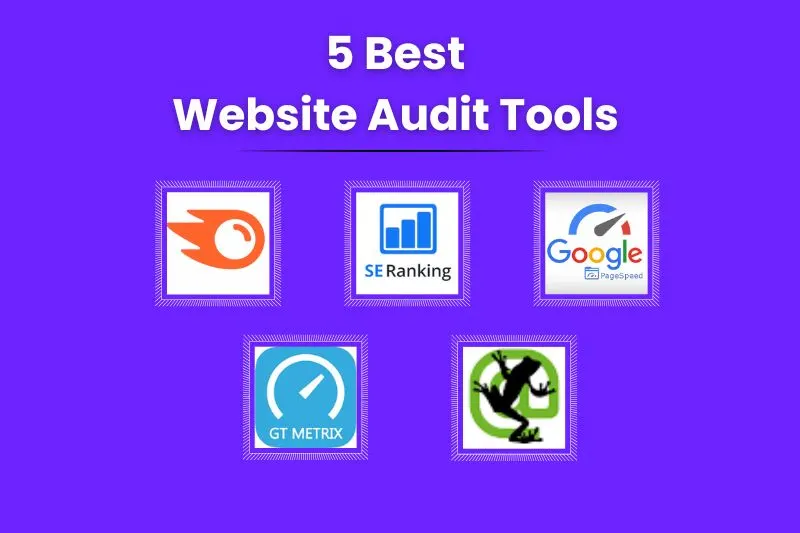Search Engine Optimization (SEO) is the driving force behind a website's visibility on search engines like Google, Bing, and Yahoo. While content and off-page factors like backlinks play a significant role in SEO, the technical aspects are equally critical. Technical SEO is the foundation upon which your website's ranking and performance are built. In this blog, we'll explore the importance of technical SEO for your website's success and provide insights into how you can enhance it to achieve better search engine rankings and user experiences.
Understanding Technical SEO
Technical SEO encompasses a series of optimization practices that focus on the backend of your website. It involves optimizing your website's infrastructure, ensuring search engines can crawl and index your site effectively, and enhancing the user experience. Here are a few essential technical SEO components:
Site Speed:Google and other search engines consider site speed a critical ranking factor. Slow-loading websites can be frustrating for users and cause high bounce rates. Technical SEO includes optimizing your site's speed through various methods, such as compressing images, reducing server response times, and using content delivery networks (CDNs).
Mobile-Friendliness:With the growing number of mobile users, having a mobile-friendly website is essential. Google prioritizes mobile-friendly websites in its rankings, so optimizing for mobile is a crucial aspect of technical SEO.
Site Structure:A well-organized site structure makes it easier for search engine crawlers to navigate your website. This includes having a clear hierarchy of pages, using descriptive URLs, and creating an XML sitemap.
Crawlability and Indexing:Ensuring that search engine crawlers can access and index your web pages is vital. You can use techniques like creating a robots.txt file to control what's indexed and submitting a sitemap to Google Search Console.
Secure Sockets Layer (SSL) Certificate:Security is a significant concern for users and search engines. An SSL certificate adds the 'https' to your website's URL, indicating a secure connection. Google considers SSL to be a ranking factor.
Structured Data Markup:Implementing structured data markup (schema markup) helps search engines better understand your website's content. This can result in rich snippets and enhanced search engine listings.
Canonical Tags:Canonical tags help to prevent duplicate content issues by specifying the preferred version of a page. This is especially crucial for e-commerce websites and blogs.
Optimizing Images:Properly optimizing images by reducing file sizes and adding alt text can improve site speed and enhance accessibility.
Why Technical SEO Matters
Improved User Experience:A technically optimized website is user-friendly. Users can navigate the site easily, find the information they need quickly, and enjoy faster loading times.
Search Engine Visibility:Search engines favor websites that are technically sound. A well-optimized site is more likely to rank higher in search results, increasing its visibility to potential visitors.social media
Reduced Bounce Rate:Slow-loading websites and poor user experiences can result in a high bounce rate, which negatively impacts rankings. The use of technical SEO can help decrease bounce rates.
Competitive Advantage:With many websites competing for the same audience, technical SEO can provide a competitive edge. It helps you stand out in search results and deliver a superior user experience.
Mobile Optimization:The increasing use of mobile devices for internet access means that mobile optimization is no longer optional. Websites that aren't mobile-friendly are likely to lose traffic.
Security and Trust:An SSL certificate and a secure website give users confidence in your site. This trust can translate to better engagement and conversions.
Optimizing Your Technical SEO
Website Audit:Begin with a thorough website audit to identify technical issues. There are many SEO audit tools available to help you assess the health of your website.
Mobile optimization:Ensure that your website is responsive and mobile-friendly. Test it on various devices to ensure a consistent and pleasant user experience.
Site Speed:Optimize your site for speed. Compress images, reduce server response times, and leverage browser caching to improve loading times.
Sitemap Submission:Create and submit an XML sitemap to Google Search Console to help search engines index your content efficiently.
Security:To make your website secure, install an SSL certificate. This is not only important for SEO but also for user trust.
Structured Data Markup:Use schema markup to provide search engines with structured data about your content.
Canonical Tags:Implement canonical tags to specify the preferred version of a page and avoid duplicate content issues.
Content Quality:Technical SEO is not just about the backend. High-quality content, optimized for relevant keywords, is crucial for success.
In Conclusion
Technical SEO plays a vital role in your website's success. It ensures that your website is not only visible to search engines but also provides a seamless user experience. By optimizing your site for speed, mobile-friendliness, and security, you can improve your rankings, attract more visitors, and ultimately achieve your online goals. Invest in technical SEO, and you'll be on your way to a more successful website.










